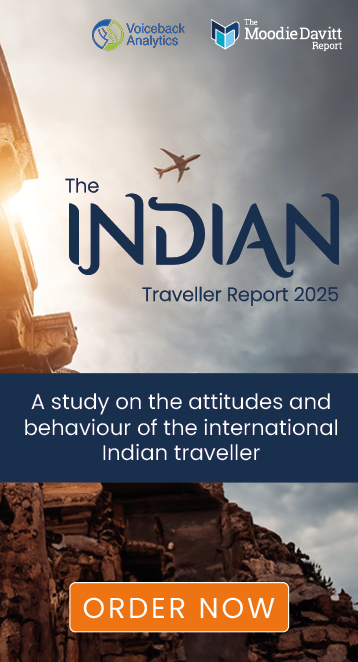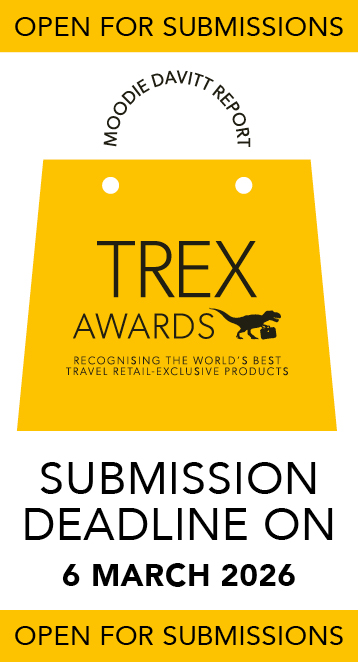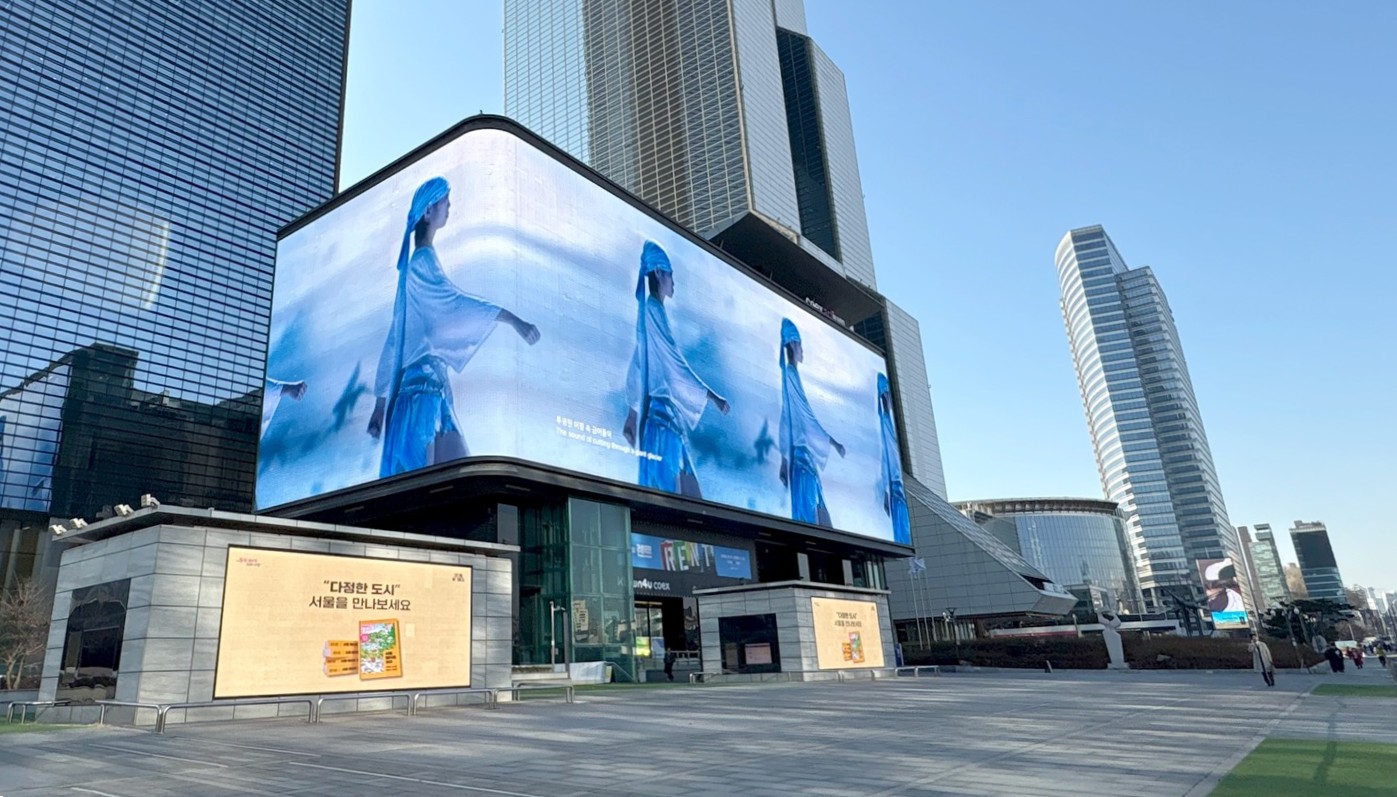CHINA. The latest report from China Trading Desk reveals that Chinese tourists are projected to take over 155 million international trips in 2025, surpassing pre-pandemic levels. Of these, 28% are now budgeting over CNY50,000 (US$6,890) per trip.
The China Outbound Travel Sentiment Survey findings for Q1 2025 highlight a surge in high-spending travellers, combined with digital-first shopping habits and a growing demand for exclusive luxury products.
The report shows that 58% of Chinese travellers plan to shop at airports before boarding, while 28% remain undecided, presenting an opportunity for retailers to engage with these travellers through targeted promotions or in-store experiences.

According to the China Outbound Travel Sentiment Survey for Q1 2025 72% of Chinese travellers are planning multiple international trips this year, signalling a long-term shift towards increased mobility and tourism spending.
These travellers are making faster decisions and searching for premium experiences, with digital content and social media playing a key role in shaping travel choices.
The last-minute booking culture
China Trading Desk reveals a growing trend towards spontaneity in travel planning, with 76% of Chinese travellers now booking trips less than a month in advance. This shift is particularly noticeable among younger and high-net-worth travellers, who value flexibility.
As a result, airlines, hotels and travel service providers are adjusting pricing strategies, optimising last-minute inventory and improving mobile-first booking experiences.
While Southeast Asia (Singapore 17%, Malaysia 12%) remains the dominant region for Chinese outbound travel, the survey reveals an emerging preference for long-haul destinations.
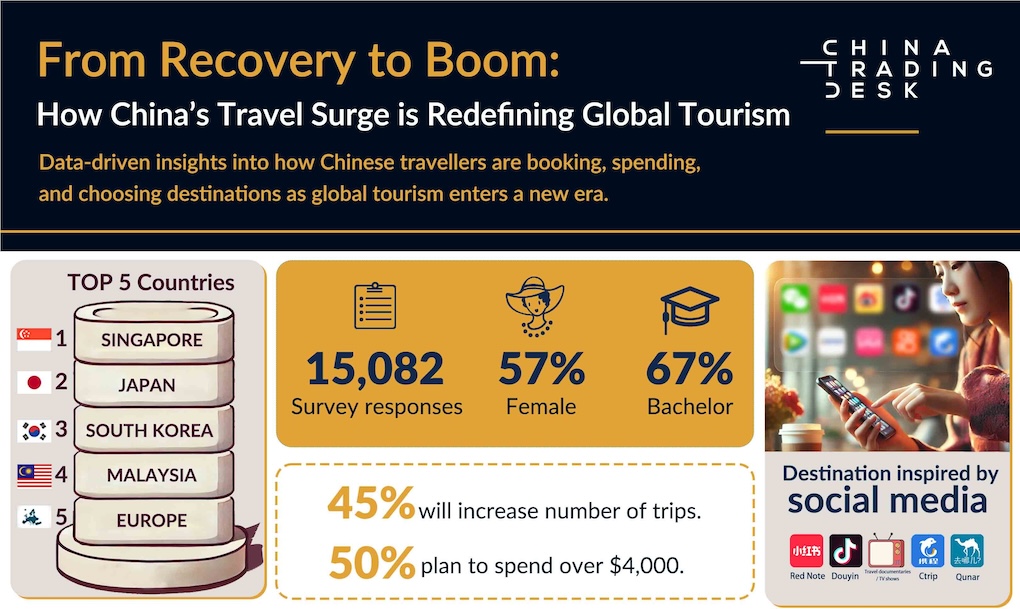
Europe (10%) has climbed to the fifth-most-preferred destination, surpassing Thailand, which fell from fourth place in Q4 2024 to seventh in Q1 2025.
Chinese travellers are engaged in airport shopping, with 61% likely to purchase duty-free products after seeing a social media promotion.
Price promotions and free gifts (36%), followed by tastings and samplings (27%) are the strongest incentives for engagement at the airport. Highlights from the China Outbound Travel Sentiment Survey appear below.
Travel budgets and spending
- 49% of travellers plan to spend at least CNY25,000 (US$3,444) per trip, with 24% budgeting over CNY50,000 (US$6,890).
- Luxury spending is highest among travellers from tier one cities, with a focus on shopping, fine dining and premium travel experiences.
- The top travel expenses are accommodation (19%), airfare (17%) and food (16%).
Travel retail insights
- 79% of Chinese travellers research shopping before their trip, showcasing a preference for planned purchases.
- Beauty and skincare products lead duty-free shopping, followed by luxury fashion, watches and fine wine.
- 61% of travellers are influenced by social media promotions on social platforms such as Xiaohongshu (Little Red Book) and Douyin when shopping at airports.
- 98% compare duty-free prices online before buying, making competitive pricing and online visibility key factors.
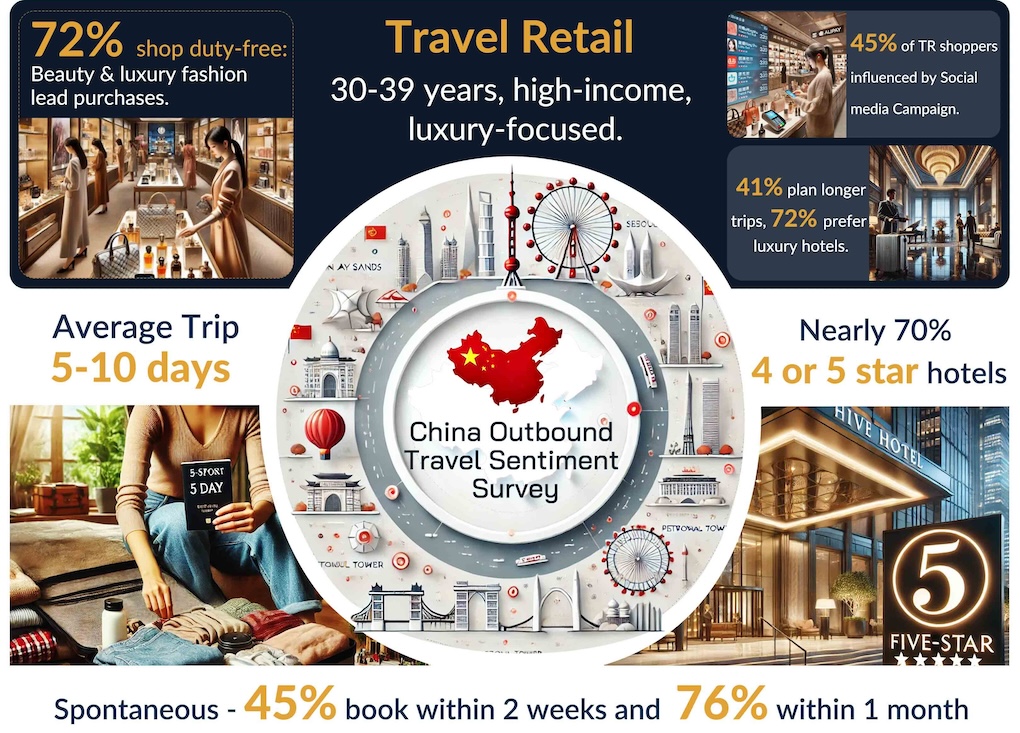
Digital influence
- Xiaohongshu is the top platform for travel discovery, followed by Douyin and Ctrip.
- Social media and influencer marketing play a key role in shaping travel decisions, with 38% of travellers influenced by digital content.
- Mobile payments dominate purchases, with Alipay and WeChat Pay accounting for 44% of transactions.
Airport shopping preferences
- 58% Chinese travellers plan to shop at airports before departure.
- Beauty (23%) and fashion accessories (17%) are the most popular duty-free categories.
- 98% compare duty-free prices with online platforms, emphasising the need for clear pricing and digital engagement.
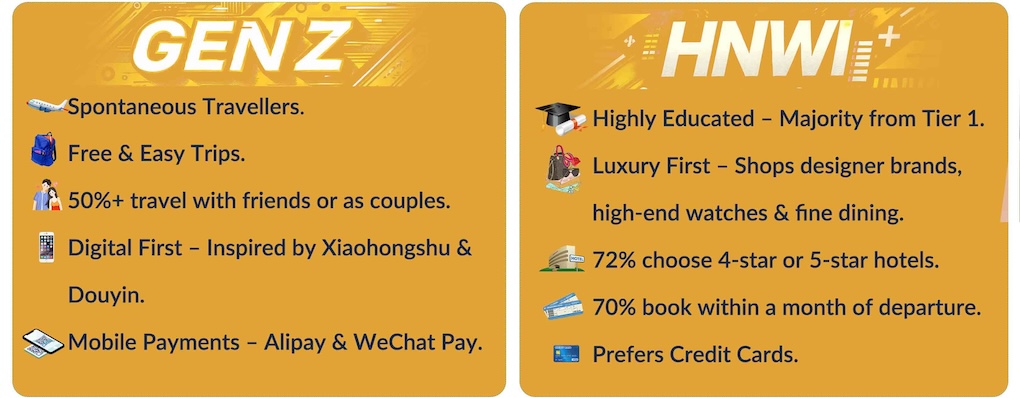
China Trading Desk CEO and Founder Subramania Bhatt commented: “As China’s outbound travel market surpasses pre-pandemic levels, travel retail is experiencing a digital transformation with heightened awareness and demand for exclusive products from travellers.
“Luxury brands, duty-free stores and global travel retailers must adapt to the digital-first, high-spending Chinese traveller, whose tastes have changed since 2019.
“The businesses that invest in omnichannel experiences, short-form content marketing and seamless payment integration will be the biggest winners in 2025’s travel retail boom.” ✈








